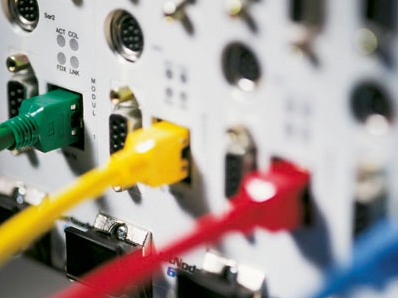Dumping net neutrality could be disastrous
Ed Vaizey, Ed Vaizey, you're driving us crazy

Corporations are like Pit Bull Terriers: sooner or later they'll go bad and eat a baby.
It's not their fault. They're made that way. They exist solely to reward their investors, and what's good for those investors is rarely good for the rest of us.
Give them the internet and they won't ask, "how do we make this better for the good of all mankind?"; they'll ask, "how can we screw every last drop of profit from this?"
So it's pretty depressing to discover that when it comes to net neutrality, culture minister Ed Vaizey reckons the corporations are the ones to listen to.
Were the people who actually use the net, whose livelihoods depend on the net, consulted? Don't be daft. The companies who want to make each data packet pay have promised they'll be good.
Sooner or later, they'll eat a baby.
Eating the open internet
Sign up for breaking news, reviews, opinion, top tech deals, and more.
In this case the baby they'll eat is the open internet. If ISPs can say to firms, "nice data you've got here. It'd be a shame if anything happened to it" they can ensure that the next YouTube, the next iPlayer never takes off.
Bear in mind that many ISPs aren't just carriers: they're also in the media business, so for example ISPs such as BT, Sky and Virgin have services that could be seen as competitors to, er, YouTube and iPlayer. That should be reason enough to worry about net neutrality.
You can tell a lot about a debate by who's supporting each side - so if you're on the same side as Hitler, Pol Pot and Gillian McKeith, you've probably made the wrong call.
In this debate you've got the BBC and Tim Berners-Lee in the pro-neutrality camp; on the other, the Conservatives and a handful of very big and very profitable telecommunications firms.
Those firms are hardly hurting: for example Virgin Media, whose boss describes net neutrality as "bollocks", is doing rather well.
Virgin, like many other ISPs, also wholeheartedly supports the government's plans to make the BBC help fund rural broadband, so if net neutrality is abandoned it's possible that the BBC will be paying not just for the pipes its iPlayer content travels down, but for the bandwidth it uses too.
That's a nice little earner for ISPs, but I'm not convinced that it's the right way to pay for UK broadband - and not just because the BBC's money is our money.
A fairer way
Let's assume that the ISPs are telling the truth. Let's assume that video is eating the internet, that ISPs haven't been under-investing, that bandwidth scarcity isn't artificial and avoidable and that a capacity crunch is looming.
Even if those things are true, abandoning net neutrality isn't the fairest solution; pricing is. Is it fair for my ISP to charge more for guaranteed service quality at peak times? Sure. Is it fair for it to demand cash from websites to deliver their content? No.
Given the choice between listening to Tim Berners-Lee or listening to firms that hope to profit from a two-tier Internet, I think I'll go with Sir Tim.
Four years ago, he wrote: "We may pay for a higher or a lower quality of service. We may pay for a service which has the characteristics of being good for video, or quality audio. But we each pay to connect to the net, but no one can pay for exclusive access to me."
He was right then. He's right now.

Contributor
Writer, broadcaster, musician and kitchen gadget obsessive Carrie Marshall has been writing about tech since 1998, contributing sage advice and odd opinions to all kinds of magazines and websites as well as writing more than twenty books. Her latest, a love letter to music titled Small Town Joy, is on sale now. She is the singer in spectacularly obscure Glaswegian rock band Unquiet Mind.